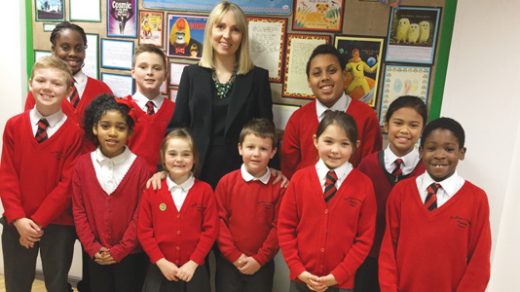UK schools bracing for in-year deficits this year with bleak outlook ahead

Almost half of primary schools and special schools and two-fifths of secondary schools in England had or were expecting an in-year deficit in 2022/23, according to a new report.
Schools are only expecting the situation to worsen next year with just under half of mainstream schools (50% primary and 42% secondary) and two-fifths of special schools expecting both to have an in-year deficit and needing to make cuts to provision in 2023/24.
Results from the National Foundation for Educational Research’s (NFER) report, ‘Cost-of-living crisis: Impact on schools – School Provision’, also suggest more than half of primary schools are asking parents for extra funds to accommodate cost-of-living pressures.
In the study, conducted in collaboration with ASK Research and funded by the Nuffield Foundation, NFER asked more than 2,500 senior leaders and teachers in mainstream schools, and more than 100 in special schools, a series of questions to understand the impacts of cost-of-living pressures on schools.
Almost half of school leaders reported that the cuts their schools are making due to the cost-of-living pressures are having a negative impact on teaching and learning in their setting. Furthermore, the cuts which schools are making in response to cost-of-living pressures are also affecting provision for pupils with Special Educational Needs and Disabilities (SEND), with widespread concern among senior leaders of all phases about their ability to fully meet the needs of their pupils.
NFER Research Director and report co-author, Jenna Julius, said: “In the short-term, schools need greater financial support to help meet the additional direct expenses associated with the increased cost-of-living such as energy and school meal bills.
“Teachers and senior leaders, particularly in the most disadvantaged schools, report their learning provision has been negatively impacted by cuts being made in response to increased costs.
“For example, 62% of primary schools, 43% of secondary and 41% of special schools report cutting spending on resources such as printed worksheets, materials for art and science and library books.”
Director of ASK Research, Amy Skipp, said: “The cuts being made in response to cost-of-living pressures in special schools are extremely concerning particularly as they include core parts of the support for pupils with SEND, to maximise their development, independence and quality of life as well as providing respite for families.
“For example, almost three-tenths (28%) of special schools report cutting their core specialist school offer, which includes the provision of hydrotherapy, physiotherapy and independence activities.”
Nuffield Foundation Programme Head, Ruth Maisey said: “We know that there are lingering effects of the pandemic including a wider disadvantage gap, increased absence from school, and poorer mental health and wellbeing.
“Schools are only able to tackle these issues if they have sufficient funds. While failure to adequately support young people risks their issues becoming entrenched and stores up considerable problems for future society.”
Responding to the survey, Paul Whiteman, general secretary at school leaders’ union NAHT, said: “This report is a stark reminder that while the overall rate of inflation has eased, prices are still rising and schools and society more broadly are continuing to face severe challenges as a result.
“Schools face a twin challenge of juggling both their increased costs for things like energy and resources, and in supporting more children who may turn up hungry and not in a good place to learn.
“It’s now often harder for them and their families to access help from services like social care which have suffered from years of under-investment, meaning already stretched school staff are increasingly picking up the slack.
“School leaders are doing their utmost to minimise the impact of these cost pressures upon children’s education, but this is a real challenge, and particularly difficult for those in more disadvantaged areas or with higher numbers of pupils with special education needs and disabilities.
“These findings give the government notice that it must mitigate the impact of continuing inflation by offering the level of investment needed in schools in the autumn spending review in November.”
Image by Juan Pablo Serrano Arenas on Pexels






